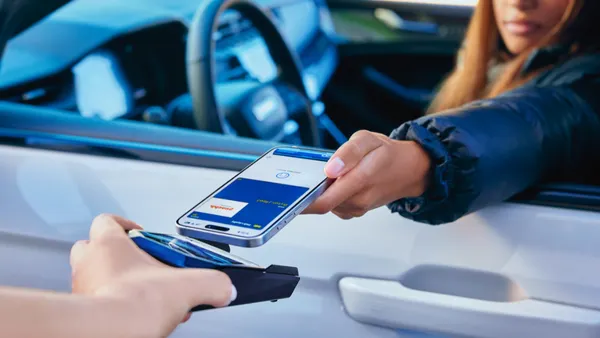Dive Brief:
- OpenTable announced in a press release that it has partnered with the Virginia Tourism Corporation to test OpenSeat, a program that pairs diners who opt in when making their reservation to be seated together at more than 30 participating restaurants.
- While booking their seats on OpenTable, any size party can choose to participate by typing "OpenSeat" in the special request section. If another party that evening has the same request, they could placed at the same table. The pilot program goes through the end of November, and guests will receive a complimentary appetizer to help break the ice.
- The tourism group and Richmond-based marketing firm Martin Agency brought the idea to the reservation leader as part of the state's "Virginia Is For Lovers" campaign. OpenSeat "allows diners to meet new people over a shared meal," said Virginia Tourism president and CEO Rita McClenny in the release.
Dive Insight:
Today's restaurant outings differ greatly from white-tablecloth establishments of decades past. The proliferation of shared plates, pairing dinners and pop-ups have made eating out an experience that's about more than just the food. While Danny Meyer introduced communal-table dining to the U.S. more than 30 years ago, shared tables now show up at expensive culinary destinations around the world and Starbucks alike. Even the original shared-table experience of lunch counters and cafeterias have staged a comeback. The idea of seating strangers together at a traditional four-top could be the logical next step in community-focused dining and "food tourism."
While dating apps Tinder and Bumble already offer the option to meet platonic friends, could OpenSeat also take a share of that market? A video describes the program as way of "turning open seats into chance meetings." With this test run, Virginians could provide perspective on how far diners are willing to go for an experience that allows them to make new friends at dinner.
OpenTable, however, will have to contend with dietary restrictions, sharing preferences and simple personality differences that could hinder the stranger-pairing program's success. That being said, if OpenSeat takes off, it could help the company beat back rising competition from upstart reservation platforms who are seriously challenging OpenTable's dominance for the first time in its 20-year history.
Despite the fact that more than 47,000 restaurants use OpenTable worldwide, seating 26 million diners a month, the company has been struggling as of late. In 2014, Priceline bought the company for $2.6 billion in 2014, but just two years later devalued it by nearly a third. In addition, its one-size-fits-all solution has been criticized by fine-dining establishments who want more control over customer data and by smaller eateries that struggle to afford the $249 monthly fee and $1 per diner charge.
The company also faced backlash after a rogue employee earlier this year allegedly made dozens of reservations at Chicago restaurants using emerging competitor Reserve, which led to costly no-shows. Reserve now works with 850 restaurants nationwide and also competes with Resy (1,000 locations) and Yelp’s reservation system, a former OpenTable partner.










